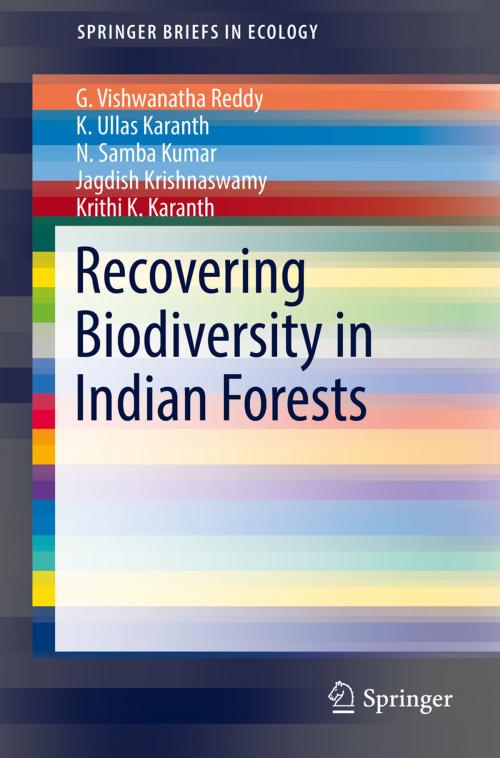Recovering Biodiversity in Indian Forests
Nonfiction, Science & Nature, Science, Biological Sciences, Ecology, Nature, Environment, Environmental Conservation & Protection| Author: | G. Vishwanatha Reddy, K. Ullas Karanth, N. Samba Kumar, Jagdish Krishnaswamy, Krithi K. Karanth | ISBN: | 9789811009112 |
| Publisher: | Springer Singapore | Publication: | May 24, 2016 |
| Imprint: | Springer | Language: | English |
| Author: | G. Vishwanatha Reddy, K. Ullas Karanth, N. Samba Kumar, Jagdish Krishnaswamy, Krithi K. Karanth |
| ISBN: | 9789811009112 |
| Publisher: | Springer Singapore |
| Publication: | May 24, 2016 |
| Imprint: | Springer |
| Language: | English |
This book demonstrates how varying levels of human disturbance manifested through different management regimes influence composition, richness, diversity and abundance of key mammal, bird and plant species, even within ecologically similar habitats. Based on our results, we show the critical importance of the ‘wildlife preservation’ approach for effective biodiversity conservation. The study also provides examples of a practical application of rigorous methods of quantitative sampling of different plant and animal taxa as well as human influences, thus serving as a useful manual for protected area managers. Protected areas of various kinds have been established in India with the goal of arresting decline in, and to provide for, recovery of biodiversity and ecosystem services. A model that targets ‘wildlife preservation’ under state ownership is practiced across the country. However, forests in India are under intensive human pressure and varying levels of protection; therefore, protected areas may also experience open-access resource use, a model that is being aggressively advocated as a viable alternative to ‘preservationism’. We have evaluated the conservation efficacy of alternative forest management models by quantifying levels of biodiversity under varied levels of access, resource extraction and degree of state-sponsored protection in the Nagarahole forest landscape of southwestern India.
This book demonstrates how varying levels of human disturbance manifested through different management regimes influence composition, richness, diversity and abundance of key mammal, bird and plant species, even within ecologically similar habitats. Based on our results, we show the critical importance of the ‘wildlife preservation’ approach for effective biodiversity conservation. The study also provides examples of a practical application of rigorous methods of quantitative sampling of different plant and animal taxa as well as human influences, thus serving as a useful manual for protected area managers. Protected areas of various kinds have been established in India with the goal of arresting decline in, and to provide for, recovery of biodiversity and ecosystem services. A model that targets ‘wildlife preservation’ under state ownership is practiced across the country. However, forests in India are under intensive human pressure and varying levels of protection; therefore, protected areas may also experience open-access resource use, a model that is being aggressively advocated as a viable alternative to ‘preservationism’. We have evaluated the conservation efficacy of alternative forest management models by quantifying levels of biodiversity under varied levels of access, resource extraction and degree of state-sponsored protection in the Nagarahole forest landscape of southwestern India.















